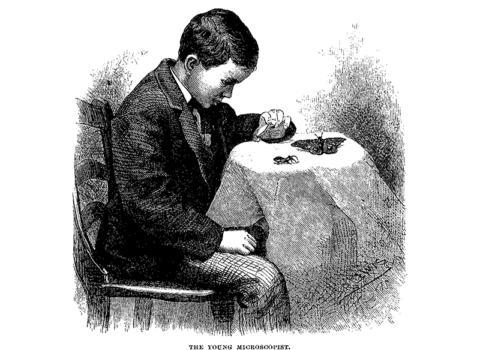My French Side
“What is it to be French? The question has always struck me as unhealthy and manipulative . . . ”
What is it to be French? The question has always struck me as unhealthy and manipulative, especially coming from former French president Nicolas Sarkozy when he was trying to poach some anti-immigrant votes from the far-right National Front (now National Rally) party. In my experience, declarations regarding a so-called national identity are mostly made in a context of resentment and fear; politicians find it convenient to bring up the subject just at the moment when a country’s citizens feel most vulnerable, whether because of perceived internal threats (in 2007, too many Maghrebi and Black Africans) or because of a genuine outside menace (in 1940, German soldiers everywhere in the streets, requisitioning private residences). In the words of Xavier Vallat, the Commissioner-General for Jewish Questions in the wartime Vichy government, Marshal Pétain—himself a supporter of a very particular sort of national identity—was working hard to “defend the French organism from the microbe that is leading it to fatal anemia.” That microbe was incarnated not by the Wehrmacht, as one might expect, but by the Jews, the Communists, and the Freemasons.
However, the question of national identity is still pursuing me, and in a certain way still disturbing me. Last month, I had the honor of being decorated by the French government for my “creations in the literary domain.” So I find myself once again confronted with my double identity and double nationality. The son of an American father and a French mother, I had all my life inclined—or at least imagined I inclined—toward my American side. Since I had grown up in the U.S. educational system, it was much easier for me to feel “Anglo” than to try to connect to my French roots.
At the moment when Madame Bénédicte de Montlaur, the cultural counselor of the French Embassy, pinned the medal on me, I was obliged to recognize some obvious facts about the difference between my two cultural cradles, as well as their relative importance. In fact, it was the money my mother inherited because of the Napoleonic Code, which forbids parents to disinherit their children, that paid for my private school education—an excellent education, especially in literature. I have every reason to believe—alas—that my French grandfather would have wanted to follow the example of my American grandfather, who disinherited my father totally, one hundred percent, as he had a legal right to do in accordance with American law. So already there’s one part of the French psychological profile that distinguishes it from the psychography of my paternal country: the priority given to the family, outranking the “freedom” of money and its possessor.
Another difference between the two cultures: my grandfather Amédée L’Etendart, the owner of a wood veneer factory in the Paris suburbs, did not have a literary bent. His tastes in theater, as described by my mother, favored sentimentality; a performance of Alphonse Daudet’s play L’Arlésienne brought him to tears. Nevertheless, in contrast with my grandfather MacArthur—in none of whose homes or offices I ever really noticed a book—L’Etendart owned a fine library, which a good bourgeois had to have for show.
Therefore, his elder daughter Christiane, deprived of her secondary education by the Germans, was able to continue her reading of the French classics, from Hugo and Dumas to the contemporary novels of Mauriac, Aragon, and Colette. (When the Panzer units had invaded France, my grandfather had moved his family—and his books—from La Varenne in the Paris suburbs to their country house near Romorantin, more than 125 miles south of the capital.) Shortly after their arrival in Sologne, some German soldiers knocked on the door to requisition the house, even going so far as to choose their bedrooms. Luckily, they never returned—they must have decided they were too far from town—but that probably contributed to my grandmother’s decision to keep her two daughters by her side.
My mother became autodidactic and bilingual and never dropped her engagement with French letters or lost her childhood habit of spending hours with big, thick books. I remember as if it were yesterday: seeing my mother, in the northern Chicago suburb where we lived, lying on her bed with her face buried in the works of Marguerite Duras, Jean Giono, Françoise Giroud, Albert Camus, or, in English, Edith Hamilton on Greek mythology. When she saw that I liked to read, she fed me French stories and other writings, including, of course, all the Tintin stories, though the book that changed my life at the age of thirteen was Le Comte de Monte-Cristo, in the Classiques Garnier edition.
At some point, I came to realize that to be French was to be a reader—to be quite simply devoted to reading as an activity both serious and joyful. And if, after I was born, my mother registered me with the French Consulate in New York rather than with the Catholic Church, that was partly because French citizenship counted for more in her eyes than any other affiliation—including even a devotion to God. For that reason, among others, after the recent fire in the Notre Dame Cathedral, I started reading to her aloud from Victor Hugo’s novel Notre-Dame de Paris. Ninety-four years old, almost blind, she smiled at me and said, “I know it by heart.” The text, she meant, not the religious edifice.



